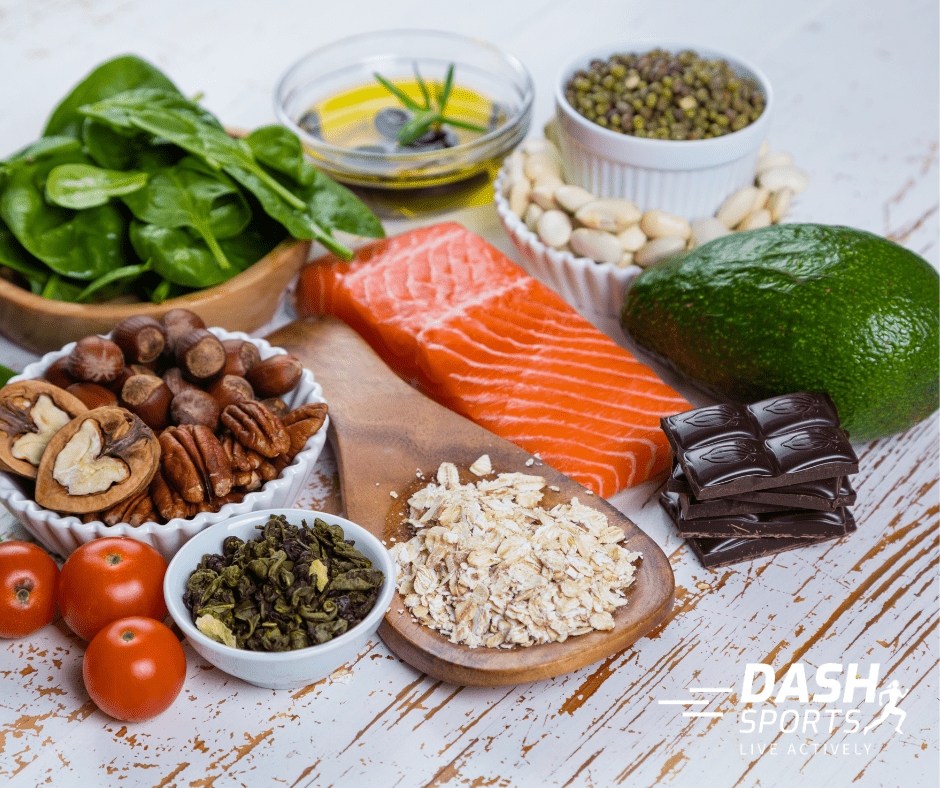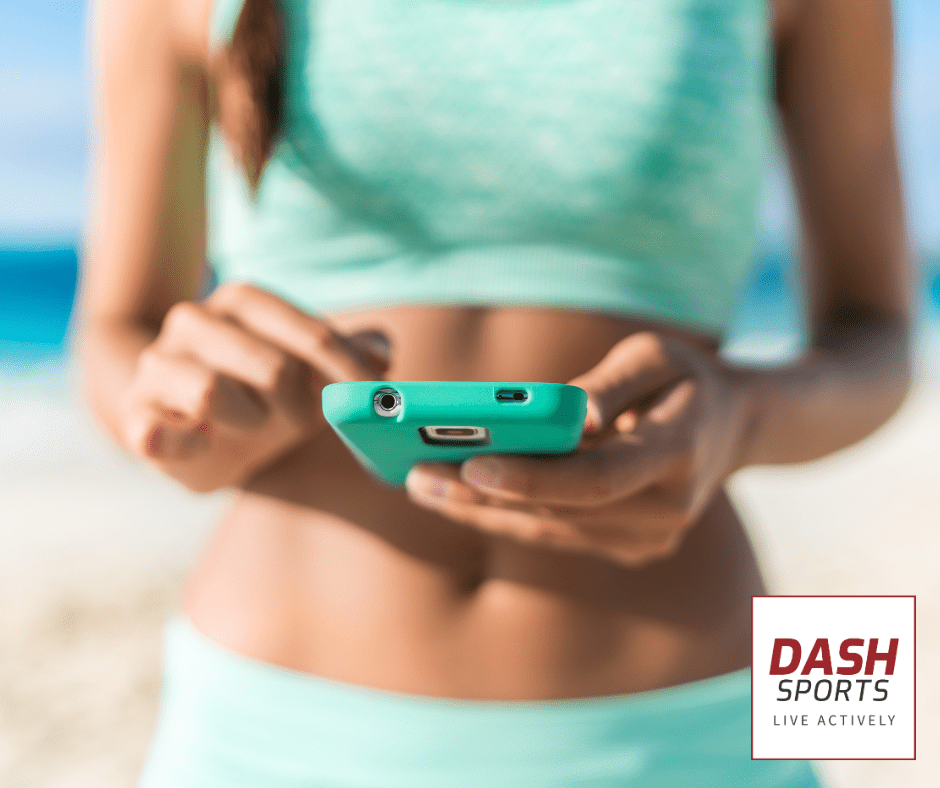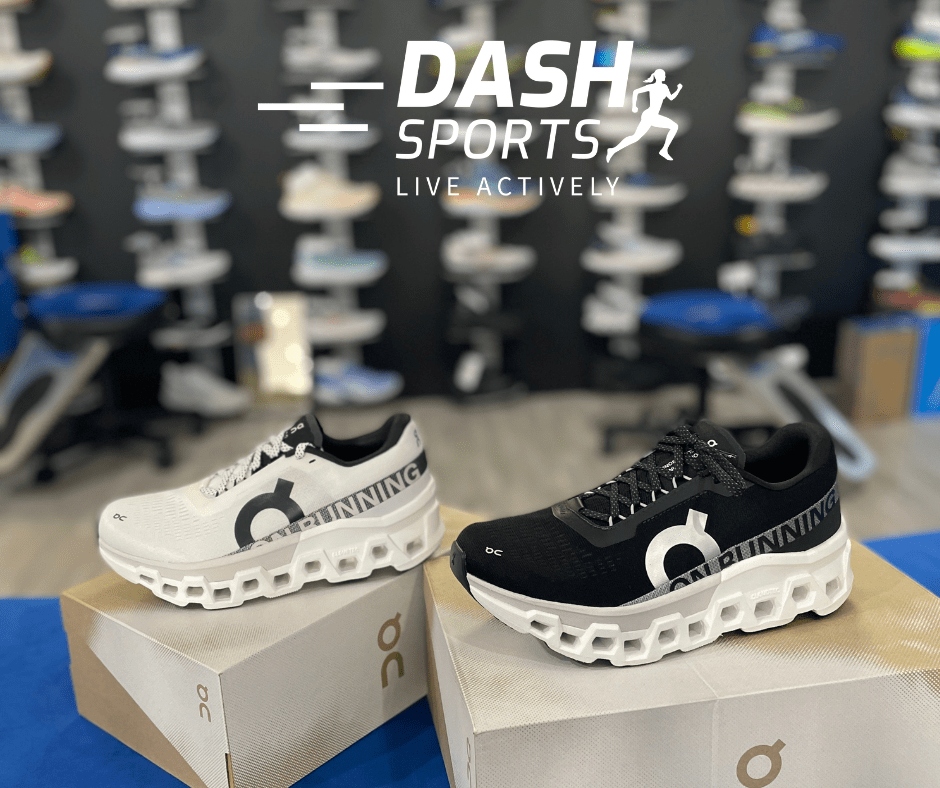Staying adequately hydrated is crucial for maintaining good health and ensuring that all bodily functions operate smoothly. Your body depends on water to survive; every cell, tissue, and organ requires it to work properly. From regulating temperature to flushing out waste, hydration impacts almost every aspect of your physiology. Despite its importance, many people often overlook the significance of consuming enough fluids throughout the day or recognizing the early signs of dehydration.
Understanding how to rehydrate effectively is pivotal, especially when considering the factors influencing our daily water needs. These factors include your overall health, activity level, and the environment you’re in.
- Explore Our Store Today
Experience the unique Dash Sports approach with our tailored shoe fitting service.
A strategic approach to hydration can help improve physical performance, cognitive function, and overall well-being. While water is the most straightforward way to hydrate, other fluids and even foods can contribute to your daily water intake, ensuring you remain properly hydrated.
Key Takeaways
- Maintaining hydration is essential for health and supports vital bodily functions.
- Recognize the importance of fluid intake and the risks of dehydration.
- Utilize various hydration strategies to meet your specific hydration needs.
Understanding Hydration
Proper hydration is essential for your body’s optimal functioning. Every cell, tissue, and organ in your body requires water to work correctly. This section explores hydration’s role in maintaining your health.
Basics of Body Hydration
Your body loses water through various activities, such as sweating and urination. To maintain the balance, you need to replenish your body’s water levels by drinking water and consuming beverages and foods that contain water. The amount of water each person needs can vary based on activity level, age, and climate.
Importance of Water for Health
Water is crucial for maintaining health as it’s involved in numerous bodily functions, including regulation of body temperature, waste elimination, and nutrient transport. Without adequate fluid intake, your body cannot perform these functions properly, leading to a decline in overall health.
Dehydration: Causes and Symptoms
Dehydration occurs when you use or lose more fluid than you take in. Causes can range from intense exercise and hot weather to illnesses that cause vomiting or diarrhea. Common symptoms include thirst, dry mouth, headache, dizziness, and dry skin. In severe cases, dehydration can lead to confusion and a significant decrease in urination. Recognizing these symptoms and responding quickly by increasing fluid intake is vital.
Optimal Hydration Methods
Proper hydration is crucial for maintaining your health, and there are several effective methods to ensure you’re getting enough fluids and electrolytes. Utilizing a combination of foods, beverages, and electrolyte replenishment can help you stay optimally hydrated.
Hydration Through Foods
Fruits and Vegetables: Many fruits and vegetables have high water content, aiding in hydration. For instance, cucumbers and watermelons are over 90% water, providing both fluids and nutrients. Including these in your diet can contribute to your daily water intake.
Hydrating with Beverages
Water: It’s the most fundamental and essential beverage for hydration. You should aim to drink enough to satisfy your thirst and maintain clear or pale yellow urine.
- Milk: It can be an excellent hydration choice, as it provides a balance of water, carbohydrates, proteins, and electrolytes.
- Coconut Water: Known for being rich in potassium, it’s a natural alternative to traditional sports drinks.
- Smoothies: Combining hydrating fruits and vegetables in a smoothie can increase hydration levels while also delivering beneficial nutrients.
- Skratch Hydration: Skratch Labs makes sports nutrition designed to help you perform better without offending your gut.
- Nuun Hydration: Nuun Hydration offers electrolyte tablets and hydration products, with a focus on clean ingredients and optimized nutrition.
Replenishing Electrolytes
Electrolytes, such as sodium and potassium, are vital for hydration and overall health. They help regulate your body’s fluids.
- Sports Drinks: These are specifically designed to replenish electrolytes during prolonged physical activity. Choose drinks that have a balanced electrolyte profile and are low in added sugars. Dash Sports carries Noon and Skratch brands.
- Oral Rehydration Solutions (ORS): In cases of severe dehydration, ORS can be a quick and effective method to restore electrolyte balance.
Hydration for Specific Needs
Hydration requirements can vary significantly based on a range of factors, from your level of physical activity to unique health considerations. Understanding the nuances of hydrating for different demographics and conditions ensures that you replenish your body’s fluids effectively.
Hydration for Athletes
When you engage in exercise, particularly during intensive workouts or sports, your body loses fluids and electrolytes through sweat. Replacing these is crucial, as dehydration can impair your performance and recovery. Athletes often benefit from sports drinks that contain electrolytes like sodium and potassium, as well as carbohydrates for energy replenishment. If you’re a salty sweater or engaged in activities longer than an hour, these drinks can be especially useful in maintaining your hydration balance.
Hydration for Men vs. Women
Despite the general principles of hydration applying to everyone, men and women can have different hydration needs. Women who are pregnant or breastfeeding require additional fluids. During menstruation, some women may need to increase fluid intake due to fluid loss. Men, in contrast, often require more fluids due to having higher average body mass and being more likely to be involved in physically demanding jobs or activities.
Hydration for Health Conditions
Your hydration strategy may need adjustment if you have certain health conditions. For individuals with diabetes, maintaining proper hydration helps in the regulation of blood sugar levels. In the case of kidney disease, fluid intake must often be monitored and regulated to prevent overburdening the kidneys. It’s essential to consult with your healthcare provider for personalized hydration advice, particularly if you have a medical condition affecting your fluid balance.
Hydration Strategies
Hydration is central to maintaining your health and well-being, especially during exercise, which can increase your risk of dehydration. A thoughtfully crafted plan can help you manage your water intake throughout the day and during physical activity, keeping dehydration and its symptoms like fatigue and muscle cramps at bay.
Daily Hydration Plan
Your daily water intake is a cornerstone of your overall health. Aim to consume a minimum of 8 cups (64 ounces) of fluids per day, adapting to your body’s specific needs. Start with a glass of water in the morning to kickstart hydration and consistently drink at intervals. Utilize a water tracking app or carry a reusable bottle to monitor your intake. Here are simple steps you can follow:
- Drink a glass of water upon waking.
- Have one glass before each meal.
- Sip small amounts between meals.
- Increase intake in hot climates or when sick.
Hydration Techniques During Physical Activity
When exercising, rehydrating is essential as you lose fluids through sweat. For every 20 minutes of intense physical activity, drink approximately 7-10 ounces of water to compensate for the loss. Include drinks with electrolytes if exercising for over an hour to replenish what’s lost in sweat and prevent muscle cramps. Follow these techniques:
- Hydrate before you start: 17-20 ounces, 2-3 hours before exercise.
- Maintain hydration: 7-10 ounces every 10-20 minutes during exercise.
Recovery and Rehydration
Post-exercise, your focus should be on recovery and rehydration to replace fluid and electrolyte loss. Within 30 minutes post-workout, aim to drink 16-24 ounces of fluid for every pound lost through sweat. Consider incorporating foods with high water content, like cucumbers or watermelons, to assist in your recovery and avoid fatigue. Here is what you should do:
- Weigh yourself before and after exercise to estimate fluid loss.
- Consume a balanced meal with fluids, sodium, and potassium.
- Continue to sip water or a sports drink after cooling down.
- Explore Our Store Today
Experience the unique Dash Sports approach with our tailored shoe fitting service.
Potential Hydration Pitfalls
Inadequate hydration can lead to decreased performance and health issues; however, it’s essential to be aware of common hydration mistakes. You should understand the impact of diuretics, the effects of alcohol, and the risks associated with drinking too much water.
Understanding Diuretics and Hydration
Diuretics, such as coffee and tea, can increase urine production, potentially leading to dehydration if you don’t compensate with additional water intake. Beverages with high caffeine or sugar content might necessitate more water consumption to maintain proper hydration levels.
Alcohol and Hydration
Alcohol is a potent diuretic, which can cause a significant loss of fluids and electrolytes through increased urination. The consumption of alcoholic beverages can also lead to symptoms like headaches and dehydration, emphasizing the need for drinking water alongside alcoholic drinks to mitigate these effects.
Dangers of Overhydration
While staying hydrated is crucial, too much water intake can lead to water intoxication or hyponatremia, a condition where sodium levels in your blood become dangerously low. This can cause symptoms ranging from nausea and headaches to more severe issues like confusion or seizures. It’s important to balance your water intake, especially during extensive physical activity, to avoid these risks. Watch for symptoms such as vomiting, diarrhea, or disorientation, as they may indicate overhydration.
Monitoring Hydration
Proper hydration is crucial for maintaining your health and performance. Tracking your hydration status can help you act quickly to prevent dehydration.
Recognizing Signs of Dehydration
When your body lacks sufficient fluids, you may notice signs of dehydration, which include feeling thirsty, experiencing a headache, dizziness, and having dark-colored urine. Paying attention to these signs is critical. If your urine color tends to be a deep yellow, akin to apple juice, it’s a prompt to increase your fluid intake.
Measuring Hydration Levels
Aside from observing physical symptoms, measuring hydration levels is a more quantifiable approach. You can track changes in your weight, particularly after exercise, to monitor water loss. A sudden drop in weight typically indicates fluid loss. Additionally, using urine color as a guide can be helpful; aim for a pale straw color, which suggests proper hydration. Your urine can provide instant feedback about your hydration status, and maintaining adequate hydration can help prevent the unwelcome sensations of thirst and subsequent physical symptoms.
Practical Hydration Tips
Staying hydrated is critical for your health, and it requires consistent practice. The right balance of water and electrolytes supports various bodily functions. Below are actionable tips for hydration in various situations.
Hydration Habits for Daily Life
To maintain proper hydration daily, drink plenty of water—starting with a glass in the morning. Aim for a baseline of 64 ounces per day, as suggested by Healthline, adjusted based on activity level and climate. Don’t wait until you feel thirsty; an electrolyte balance with sodium and potassium is also important for optimal body function.
- Tip: Keep a water bottle at your desk and take regular sips.
- Tip: Consume foods high in water content, like cucumbers and watermelon.
Hydration on the Go
When you’re on the go, carry a reusable water bottle to ensure you’re never without fluids. For situations where you need quick rehydration, like after exercise, a sports drink like Gatorade can replenish electrolytes efficiently, but be mindful of sugar content.
- Tip: Choose a bottle that’s easy to tote, and pick fluids fortified with vitamins if you’re active.
- Tip: Consider a hydration tracker app to remind you to drink water regularly.
Hydration for Recovery and Illness
During recovery from illness, especially with symptoms like vomiting or diarrhea, drinking water might not be enough. Products such as Pedialyte are designed to restore hydration and electrolytes more effectively than water alone. Always consult your doctor for advice on hydration if you’re ill. Warm soups are soothing and can also provide hydration and salts your body needs to recover.
- Tip: Sip small amounts of an electrolyte solution or broth if you have trouble keeping fluids down.
- Tip: Monitor your urine color to gauge hydration; it should be light yellow, not dark.
Supplementary Hydration Knowledge
In this section, you’ll grasp the significance of vitamins and minerals for hydration, understand how hydration affects mental performance, and learn about the various environmental factors influencing your hydration needs.
Role of Vitamins and Minerals
Your body relies on a delicate balance of nutrients and minerals to maintain proper hydration. Key electrolytes like sodium, potassium, magnesium, and calcium help regulate your blood pressure and fluid balance. For example, magnesium plays a crucial role in energy production and muscle function and can be found in hydration supplements recommended by dietitians, supporting the efficient absorption of water.
Hydration and Mental Performance
Optimal hydration is essential for your brain and cognitive functions. A hydrated state ensures better focus and clarity of thought and can prevent the onset of fatigue. Even modest dehydration can impair your cognitive abilities and sleep quality, influencing your blood flow to the brain and impacting mental performance. Studies underscore the link between proper hydration and cognitive function, cementing the necessity for consistent fluid intake.
Environmental Influences on Hydration
Your hydration requirements aren’t static; they change with environmental conditions. High altitude, for instance, can lead to increased water loss through respiration and necessitate greater fluid intake. Conversely, you need to replenish fluids lost through sweat in humid climates more frequently. Be aware that caffeine consumption, often increased in colder environments to stay warm, can have diuretic effects, further affecting your hydration status.
Frequently Asked Questions
This section addresses common concerns about staying hydrated and is tailored to equip you with practical tips and insightful answers.
What are the most effective rehydration drinks for combating dehydration?
Electrolyte-rich drinks, such as sports beverages, are effective for combating dehydration due to their balanced content of salts and sugars, which help in quickly restoring your body’s fluid balance.
What hydrates better than water when you need quick hydration?
For quick hydration, coconut water or oral rehydration solutions are more hydrating than water alone as they contain electrolytes like sodium and potassium that your body can absorb rapidly.
How can you hydrate your skin effectively to maintain its health?
Topically applying a hydrating moisturizer with ingredients like hyaluronic acid can help your skin retain moisture. Additionally, drinking plenty of water contributes to your overall skin hydration.
What are some efficient methods to hydrate overnight for optimal recovery?
To hydrate overnight, you might consider a humidifier in your room to prevent air dryness and using a thick, overnight moisturizing cream to help lock in the skin’s moisture while you sleep.
What are the best practices for hydrating quickly when feeling unwell?
When unwell, sipping small amounts of isotonic drinks or clear broths can quickly rehydrate you without overwhelming your digestive system. Avoid caffeinated drinks as they can lead to increased dehydration.
What are the ideal drinks for adults to combat dehydration effectively?
Adults should consume water consistently throughout the day, but can also include herbal teas and diluted fruit juices which offer additional nutrients and can help promote hydration.





